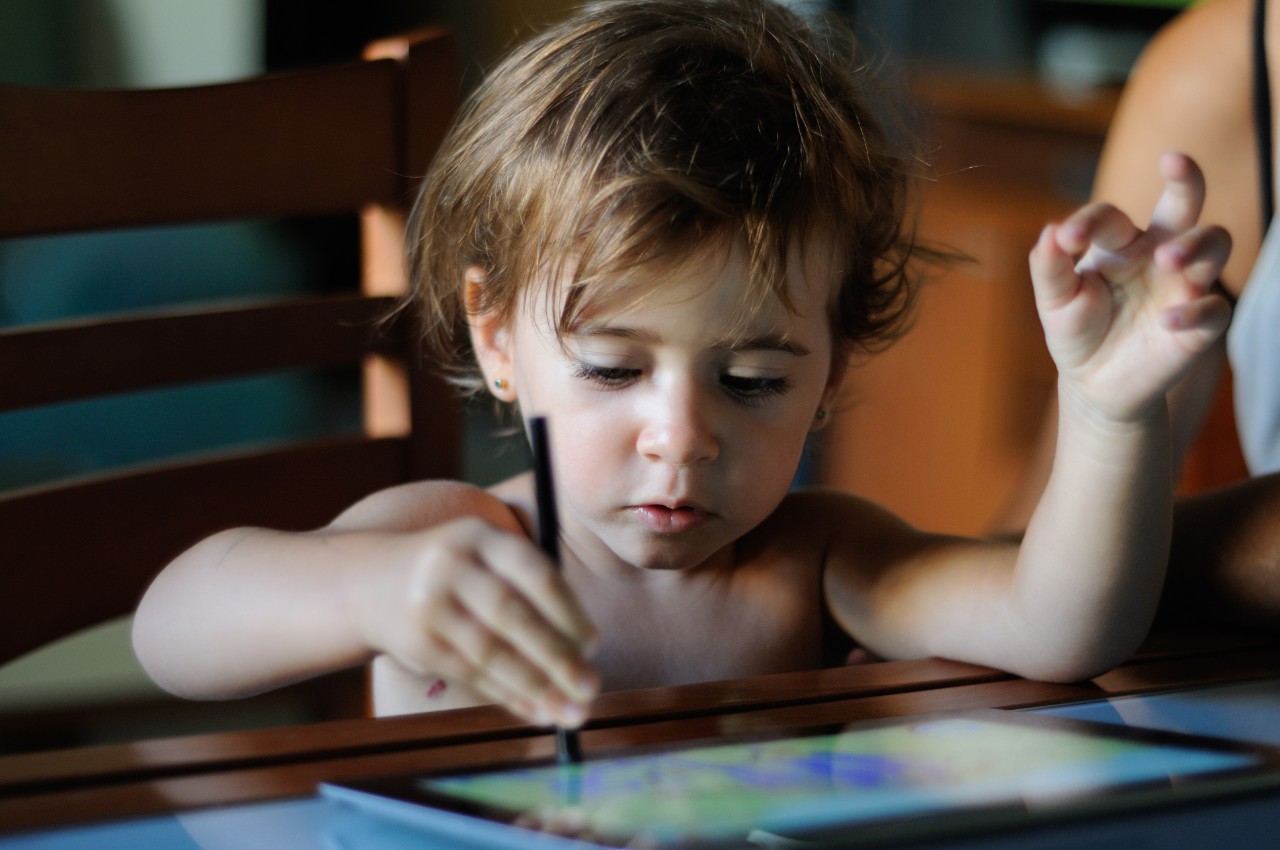New media: parents as role models
Children should gain experience in the real world and develop social skills before being exposed to digital media. You need help from role models.

Children love to explore the world. Primary experiences - experiences that the child has of the real world through its own body and sense of touch, hearing, sight, smell and taste - are a vital part of this. In other words, digging in the sandpit, playing with water, kneading dough and painting on paper.
Social experiences are also important: playing with other children at home, in the forest, at the sports club. Added to these experiences, today’s generation is inevitably also exposed to digital media from a very early age, through their parents, other carers and older siblings. In this challenging environment, many parents wonder how they can help ensure the physical and psychological well-being of their children.
“Media literacy starts with media abstinence”
Child psychiatrist Professor Christoph Möller* explains: "For healthy development, children and young people need a loving, protective parental environment. On the other hand, they need opportunities to develop skills such as communication, learning, empathy and frustration tolerance."
These skills can’t be learnt on your own staring at a screen. Children need to experience the real world. Role models and influential figures can help by paying children attention, embodying certain values and ways of behaving, interacting with them, creating lasting experiences and explaining how things are connected.
That’s why Möller advocates total abstinence: “Digital media is best avoided entirely until children have learnt these skills – media literacy starts with media abstinence”.
““Media literacy starts with media abstinence””
Be a role model for your children
Children pay close attention to how their parents use digital media. If mum is chatting online or dad is playing a game on his smartphone, they’ll want to try it at some point, too. When it comes to digital media, parents are role models, setting the tone in terms of how, and how intensively, their children use them.
They are also intermediaries here: They communicate their values through discussion and guidelines. "Your child needs you as a discussion partner," writes the Swiss Addiction Foundation in one of its letters to parents, "because your opinion is important to them, even if it doesn't always seem that way." In order to form their own opinion, they need "a discussion with their father and mother. They must be able to form their own opinions based on their convictions, values and norms.
Applied to the use of digital media, this means, for example: When parents talk to their child about a computer game or a community, the child can form its own opinion.
Parents react differently
A study conducted in 2015 into how parents teach their children to use mobile phones revealed that parents felt that this topic throws up a number of challenges. Parents often feel helpless, overwhelmed and unable to control their children. They often argue with their children about how much they use their mobile phones. On the basis of this study, the researchers divided parents into four groups:
- Laissez-faire group: Parents in this group have capitulated to mobile multifunctional devices and don't impose any discipline or rules.
- Fearful, conservative group: In contrast to the laissez-faire group, this group restricts their children’s access to smartphones and ignores the disadvantages this leads to.
- Friendly, liberal group: Parents in this group place great importance on having a trusting relationship with their children, understand the fascination with mobiles and don’t worry too much about the whole thing.
- Actively child-focused group: They’re concerned about their children’s phone usage, talk to them about it and try to set clear usage boundaries which correspond to the child’s stage of development.
“The fourth group is clearly the ideal which everyone should aim for”, says Möller. Many parents welcome specific tips on media literacy. There are now many guides and websites that offer these (see below). But, above all, parents should trust their gut feeling when it comes to their children and apply common sense: this should help overcome many educational hurdles.
Key tips from Sucht Schweiz:
- Talk to children and young adults about their experiences with digital media. Getting them to show you apps, computer games, online activities and their favourite websites can help you gain a better understanding of why they use them.
- Establish age-appropriate rules for the time of use. (Tips on this can be found in the letter to parents and in the guidelines from Addiction Switzerland or on the parents' portal of Youth and Media).
- Be a role model: Parents and teachers should review their own media habits and modify them if necessary.
- No televisions, computers or games consoles in bedrooms – put them in a communal room. Smartphone use should also be restricted in the evening.
- Don’t use screen time as a reward or punishment, as this only inflates its importance.
- Get out and about in the real world – children and young adults alike enjoy ice-skating, swimming or hiking in the mountains and woods.


